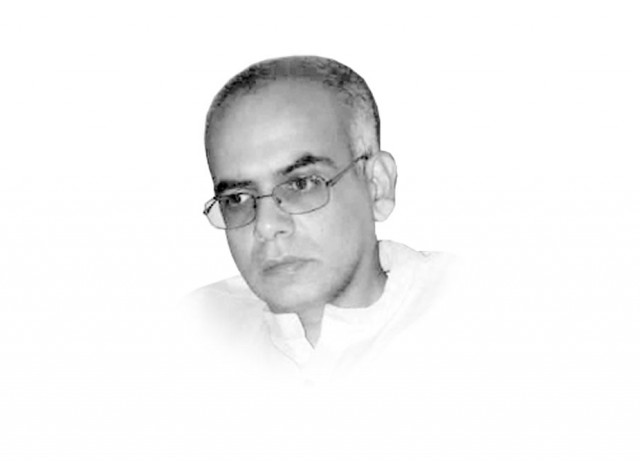Rethinking extremism, moderation, modernity
Secularism does not necessarily provide a neutral ground for all religions

We live in a world beset by false dichotomies which seek to readily label communities and even countries as being secular, moderate or extremists. Yet, a closer examination often reveals that such tidy labels often do not match realities on the ground.
In the post-911 context, for example, there has been increasing international anxiety about the threat of extremism in a nuclear-armed Pakistan. This concern has led to recurrent speculations about the nature and functioning of ‘non-moderate’ Islamic groups within the country. Yet, efforts made to define and differentiate between these groups remain problematic.
Common categorisations of non-moderate Pakistani groups distinguish between entities which operate beyond the borders of the country (in India and Afghanistan), those with more sectarian outlooks (Sipah-e-Sahaba or Laskar-e-Jhangvi), and groups which have directly targeted the state itself for not being Islamic enough, or for becoming an alleged stooge of western powers (TTP).
This above categorisation is however problematic and prone to contradictions. Consider how many sectarian groups have not only been causing havoc within the country but are also accused of taking up the cause of cross-border ‘jihad’. Similarly, militant groups aiming to oppose the state and implement their own version of Sharia (such as the TTP) are not entirely distinct from groups which operate beyond the national borders (as TTP itself has found refuge in Afghanistan). Such overlaps and contradictions make neat categorisations difficult, and complicate the state’s response in dealing with these groups.
Simplistic understanding of moderates versus extremist groups is thus not merely issues of intellectual curiosity. Such inaccurate categorisations also results in unintended consequences. Recall, for instance, how the Barelvis began being considered the ‘good Muslims’ in the West after 9/11, as opposed to the Deobandis who were deemed more austere, intolerant, and even more prone to militancy. Leaving aside the fact that the Deobandi/Wahabi affiliates had been relied upon to wage a proxy war against the Soviets in the 1980s, the decision to not only consider Barelvis more positively but to actively support groups such as Alhe-Sunnat to counter entities like the TTP soon proved shortsighted. After Governor Taseer was gunned down by a Barelvi adherent, western endorsement of Barelvi groups came to an abrupt halt.
Thinking of all Baralvi Muslims as being enlightened moderates, for their reverence to Sufi saints, was a false assumption which did not quite understand the history of varied Barelvi groups in the Indian subcontinent. Such policy faux pas can be averted in the future if there is a deeper reflection on what terms like secularism, progressive, democracy or being modern mean.
Participating in the democratic process does not provide fool-proof criteria for moderation either. We have seen the rise of religious nationalism in India where Modi has secured a landslide victory in the biggest elections in the world, based on an explicitly anti-Muslim Hindutva manifesto.
Terms like modern or rational are also problematic. The Salafis and Alhe Hadith claim to have a rational and even modern approach to religion, yet these groups have instead bred much myopia. Conversely, even the term ‘secularism’ can be interpreted quite differently. Prior to the ongoing efforts to turn it into a Hindu state, India has touted itself as being a secular state which views and treats all religions equally. Yet, communalism has been plaguing the Indian state long before the rise of the BJP.
Western states also pride themselves for having achieved the separation of state and religion. Yet, secularism does not necessarily provide a neutral ground for all religions. The anthropologist, Talal Asad, has compellingly demonstrated how many secular societies themselves exhibit harsh exclusions, as evidenced by debates concerning the rights of Muslims in France.
Academics, policymakers, and analysts need to think more deeply about what terms like extremist, modern or secular really mean. Or else, public policies to ensure religious freedom, to address religious intolerance, or to contend with extremism will remain confused and continue producing mixed results.
Published in The Express Tribune, December 25th, 2020.
Like Opinion & Editorial on Facebook, follow @ETOpEd on Twitter to receive all updates on all our daily pieces.















COMMENTS
Comments are moderated and generally will be posted if they are on-topic and not abusive.
For more information, please see our Comments FAQ